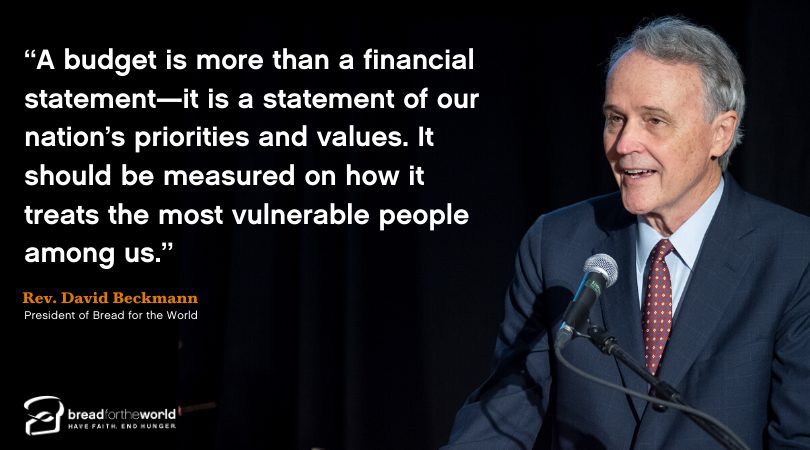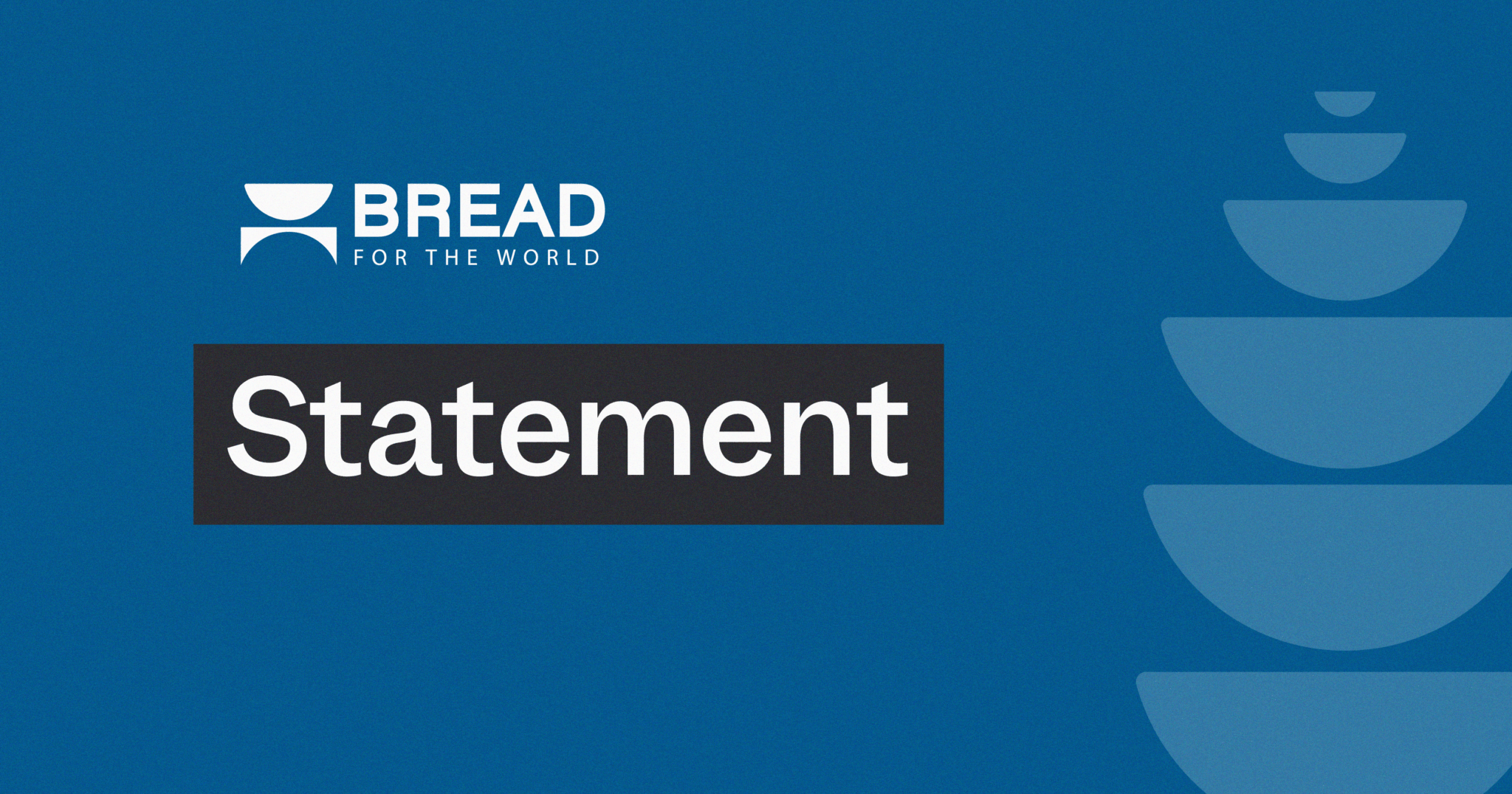By Robin Stephenson
The Trump administration’s fiscal year 2021 budget proposes to cut funding for domestic and international programs by $1.3 trillion over the next decade.
Alarming is the word that Rev. David Beckmann used to describe the budget. Alarming but perhaps not surprising.
Last year, the Trump administration released a similar proposal to slash $1.4 trillion. Thanks in part to advocacy from Bread members, the cuts were never enacted. Congress—who holds the purse strings—not only ignored the proposed cuts but increased global nutrition funding and approved increases for low-income programs in the United States.
“Bread members have always been an important part of the faith community’s response to the budget debate,” Beckmann wrote earlier this year.
For churches, it’s personal.
From pantries tucked into churches across the U.S., people of faith see hunger at their doorstep every day and do what they can to help. They are doing what Pastor Linda McCrae calls filling in the gaps. “We try to help in between what people make in jobs, receive from social programs, and what they need,” she said.
McCrae’s church—Central Christian Church in Indianapolis, Indiana—know they can’t end hunger alone. The numbers don’t add up. The budget that supports their pantry consists of a few thousand dollars from the church and is supplemented by additional giving.
Federal programs, such as SNAP, free and reduce-price school meals, among others, provide 10 times more in food assistance than churches and charities. To end hunger, the government must do its part.
Bread’s policy experts determined that the country’s religious congregations would need to raise an additional $375,000 each year for the next 10 years to make up for the proposed cuts to anti-hunger and poverty programs found in the Trump administration’s 2021 budget.
Asked if her church could absorb the cuts, McCrae said, “We are stretched as it is and coming up with funds from that magnitude would be impossible.”
A pantry is only one way that Central Christian Church responds to food insecurity. Advocacy widens their impact. By urging their members of Congress to increase global and domestic funding for nutrition programs as part of the Better Nutrition, Better Tomorrow campaign, congregants address hunger far beyond their doorstep.
“One of the basic functions of a government is to care for its people, principally the most vulnerable. That is the biblical model,” McCrae said.
Cutting funding does not cut need, but it can turn back the clock. In the U.S. and abroad, smart investments have shown that we can and have made progress against hunger. With so much at stake, Bread members must again respond with hope and persistence.
Robin Stephenson is senior manager for digital campaigns at Bread for the World.


